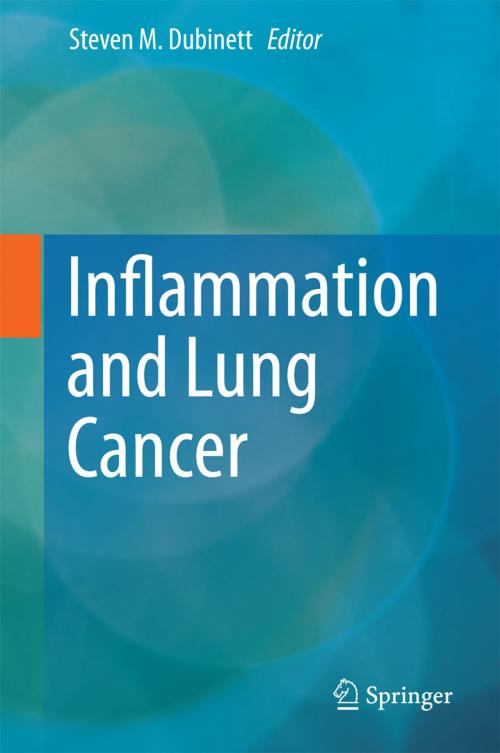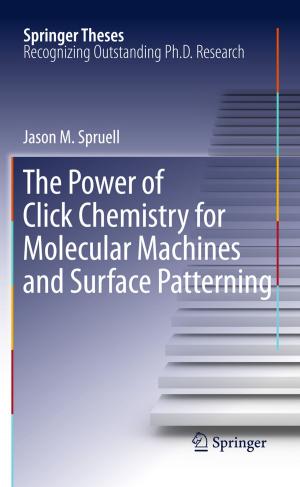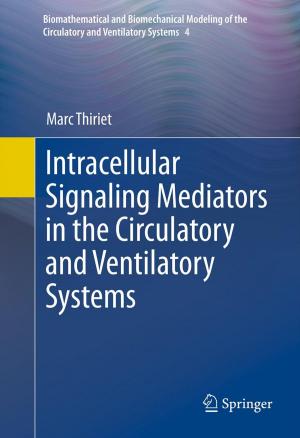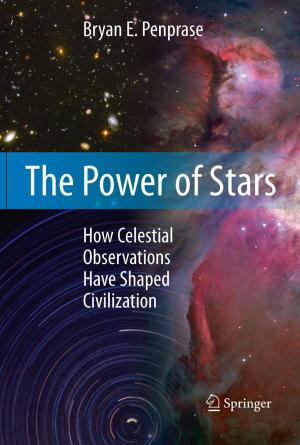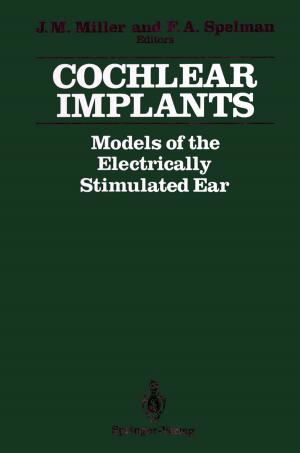Inflammation and Lung Cancer
Nonfiction, Health & Well Being, Medical, Specialties, Pathology, Oncology| Author: | ISBN: | 9781493927241 | |
| Publisher: | Springer New York | Publication: | June 24, 2015 |
| Imprint: | Springer | Language: | English |
| Author: | |
| ISBN: | 9781493927241 |
| Publisher: | Springer New York |
| Publication: | June 24, 2015 |
| Imprint: | Springer |
| Language: | English |
In recent years there have been various discoveries connecting inflammation and lung cancer and clearly there is growing interest in this area of cancer research. The link between unresolved inflammation and cancer has been well established with estimates that 15% of cancer deaths are inflammation‐related. Evidence for this link includes the following: a) some inflammatory diseases are associated with increased risk of cancer development; b) inflammatory mediators are present surrounding and within most tumors; c) overexpression of inflammatory cytokines increases cancer development and progression in murine studies; d) inhibition of inflammatory mediators decreases cancer development and progression; and e) the use of non‐steroidal anti‐inflammatory drugs (NSAIDs) has been found to decrease cancer incidence and delay progression. The volume will present aspects of the inflammatory tumor microenvironment (TME), its many roles in tumor progression and metastasis, including creation of a hypoxic environment, increased angiogenesis and invasion, changes in expression of micro‐RNAs (miRNAs) and an increase in a stem cell phenotype. The book will also cover the mechanisms of inflammatory mediators. Chronic overexpression of inflammatory mediators in the TME, as seen in smokers and patients with non‐small cell lung cancer (NSCLC), can also lead to increased tumor initiation, progression, invasion and metastasis. The volume will provide a comprehensive perspective of the latest findings and summaries of progress made regarding inflammation and its connection to lung cancer.
In recent years there have been various discoveries connecting inflammation and lung cancer and clearly there is growing interest in this area of cancer research. The link between unresolved inflammation and cancer has been well established with estimates that 15% of cancer deaths are inflammation‐related. Evidence for this link includes the following: a) some inflammatory diseases are associated with increased risk of cancer development; b) inflammatory mediators are present surrounding and within most tumors; c) overexpression of inflammatory cytokines increases cancer development and progression in murine studies; d) inhibition of inflammatory mediators decreases cancer development and progression; and e) the use of non‐steroidal anti‐inflammatory drugs (NSAIDs) has been found to decrease cancer incidence and delay progression. The volume will present aspects of the inflammatory tumor microenvironment (TME), its many roles in tumor progression and metastasis, including creation of a hypoxic environment, increased angiogenesis and invasion, changes in expression of micro‐RNAs (miRNAs) and an increase in a stem cell phenotype. The book will also cover the mechanisms of inflammatory mediators. Chronic overexpression of inflammatory mediators in the TME, as seen in smokers and patients with non‐small cell lung cancer (NSCLC), can also lead to increased tumor initiation, progression, invasion and metastasis. The volume will provide a comprehensive perspective of the latest findings and summaries of progress made regarding inflammation and its connection to lung cancer.
